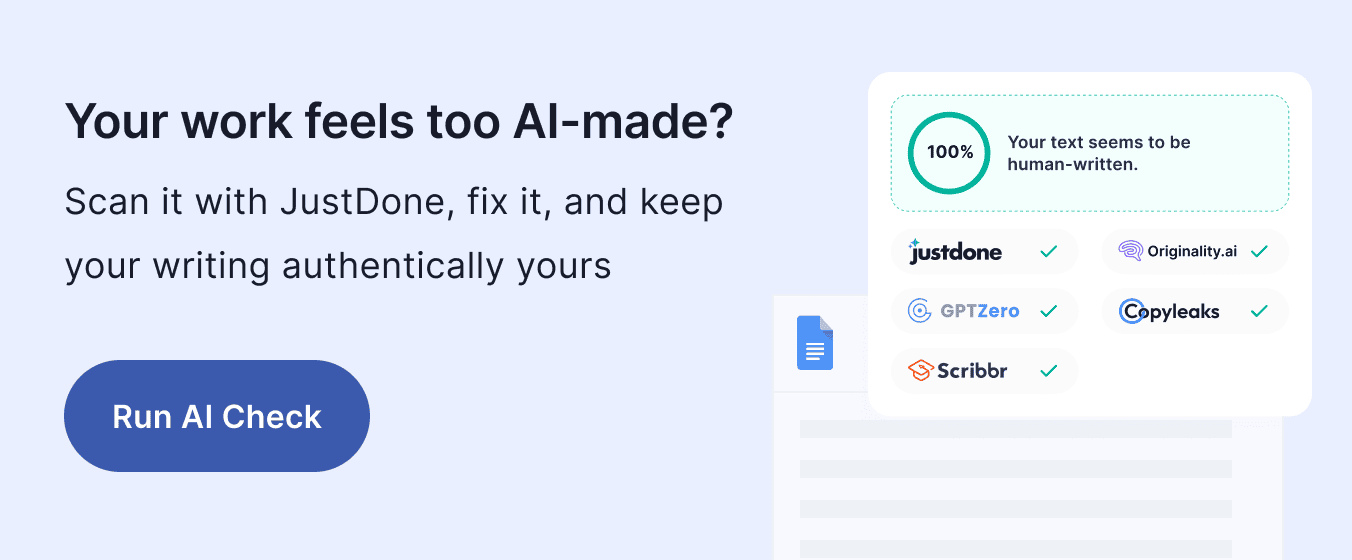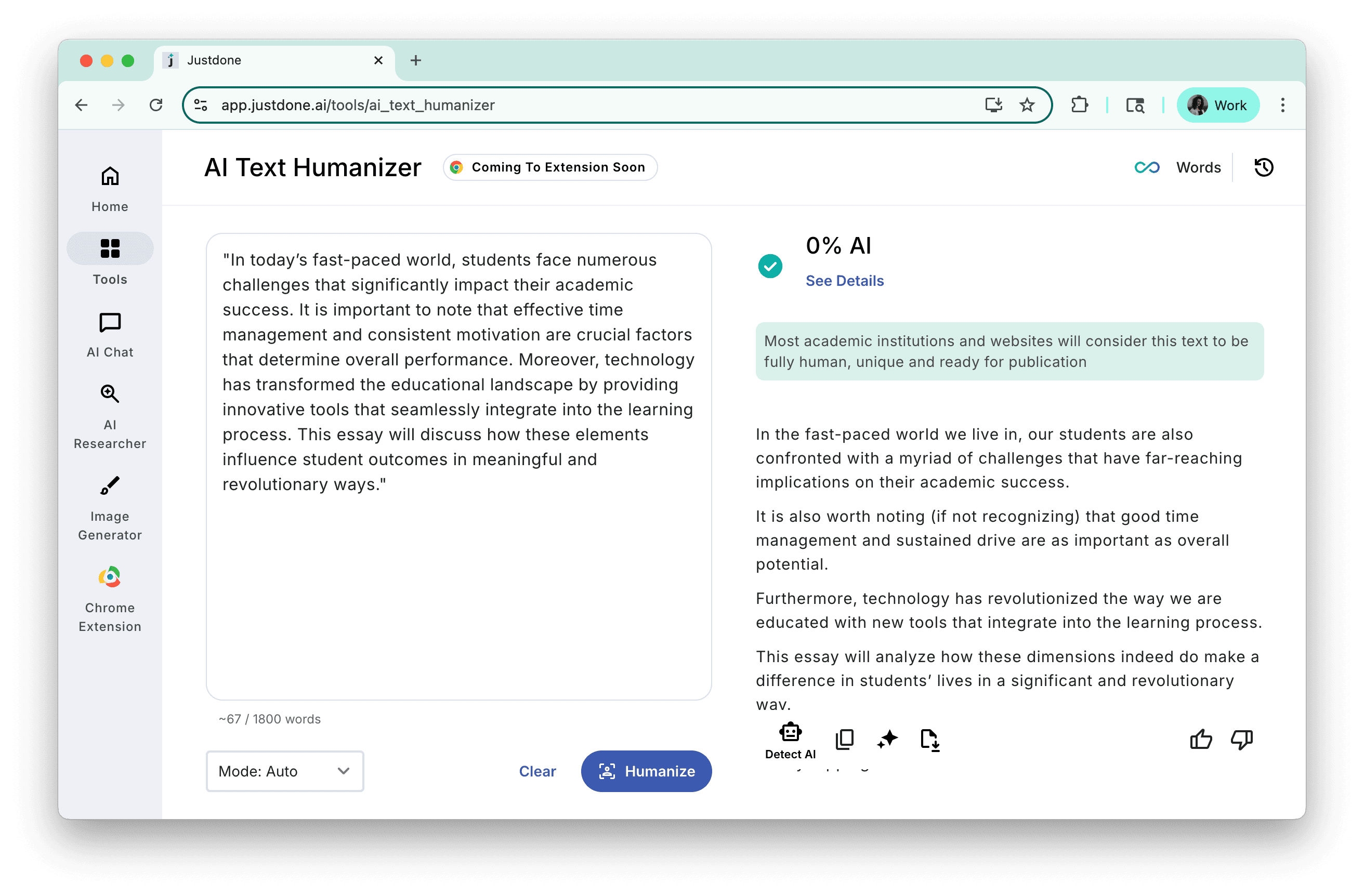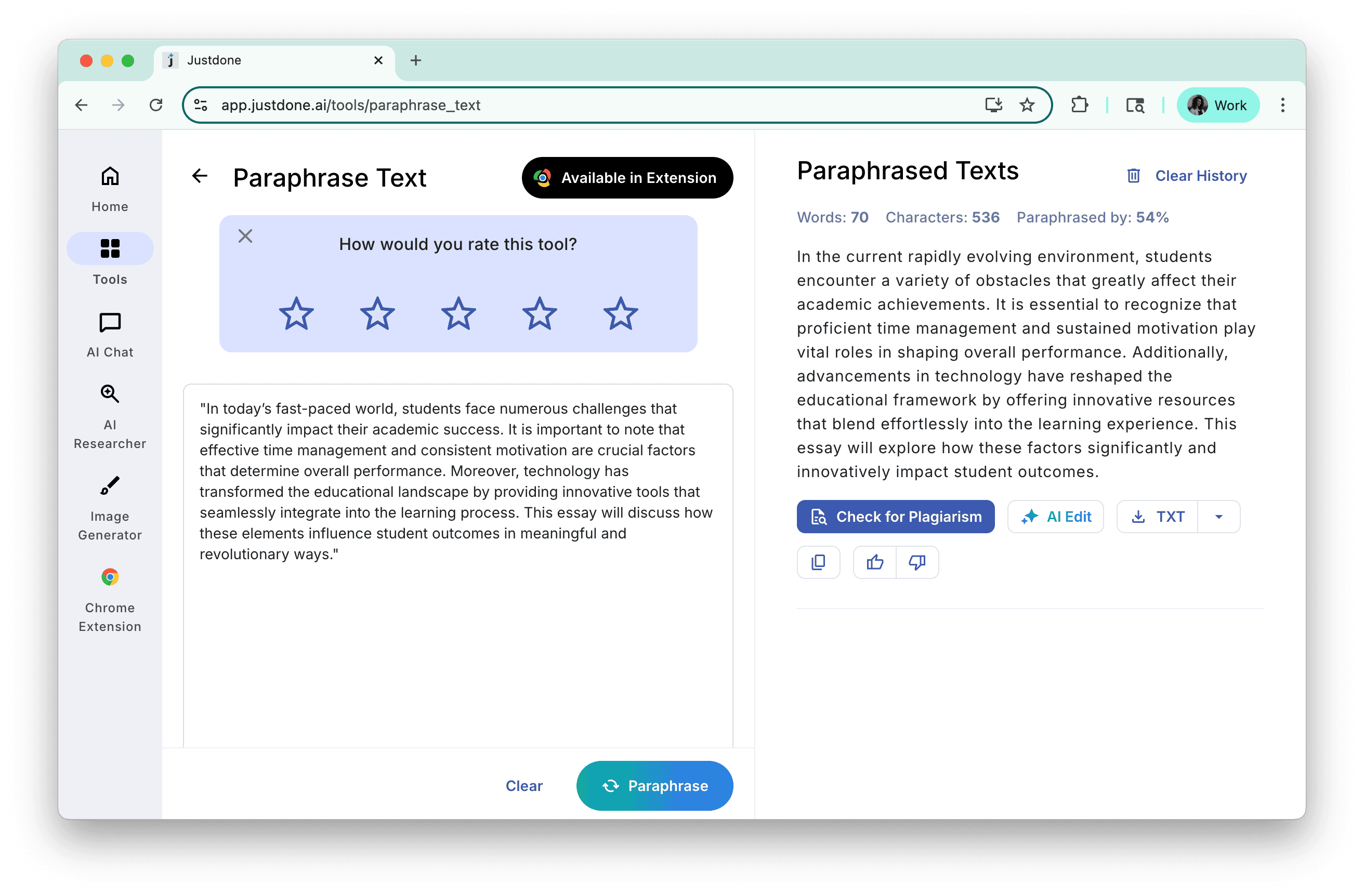Have you ever asked ChatGPT to help with an essay? Of course, you have. Definitely, you’ve probably seen sentences that feel overly polished or formal. This is where AI generated phrases come in. These are words, structures, and vocabulary that AI tools use a lot. They're not always wrong, but they often sound generic and repetitive.
I help students work with AI, and I see how common AI sentence structure patterns are. Learning to spot them can help you write more naturally. It improves your chances of passing AI detection tools. Also, it can also help your work feel more like you, which is what really matters.

Common AI Words To Avoid
I'm sure you know some typical AI words like “leverage”, “in a fast-paced world”, etc. You need to avoid them because they show up in AI-generated writing too much. Once you notice them, it becomes easier to stop sounding like a robot. Here’s a quick table of AI filter phrases, why they’re a problem, and some better alternatives.
| AI-Generated Phrase | Why It Feels Robotic | Frequency used by AI vs. human | Humanize like this |
|---|---|---|---|
| In conclusion | Overused in AI-generated conclusions | 100x | To wrap things up/So, what does this mean? |
| It is important to note | Filler phrase that adds no real value | 50x | Just say the point directly |
| In today’s society | Generic intro that feels formulaic | 100x | Be specific about the time or setting |
| This essay will discuss | Standard structure, often found in AI content | 200x | Start with the argument or topic directly |
| Moreover / Furthermore | Sounds overly formal in casual student writing | 15x | Also, or split into two shorter sentences |
| The impact of X on Y | Overused academic phrasing | 6x | Describe the effect in real-world terms |
| Leverage | Tries to sound smart but ends up vague | 12x | Use, apply |
| Synergy | Business-speak that's lost its meaning | 30x | Teamwork, working together |
| Cutting-edge technology | Overused and generic | 20x | New tools, latest tech |
| In today’s fast-paced world | Empty intro phrase that says nothing | 150x | Just start with your main idea |
| Robust solution | Tries to sound fancy, ends up unclear | 16x | Strong idea, solid plan |
| Seamlessly integrated | Too smooth to be believable | 18x | Easy to use, works well |
| Harnessing the power of | Sounds like a commercial | 25x | Use, tap into |
| Revolutionary results | Big claim that often lacks evidence | 24x | Helpful results, noticeable improvements |
| Transforming the industry | Generic and vague | 20x | Changing how we do things |
| Utilize | Just a fancier way to say “use" | 12x | Use |
One of my students had an essay returned with a note saying it felt too polished. It wasn’t that she did anything wrong. It just didn’t sound like her. We looked closer and realized she had used some typical AI words to avoid. She didn't realize they were AI favorites. The essay used “moreover,” “seamless integration,” “game-changing,” and “streamline” too often. So it was flagged by the professor's AI detector.
Overused AI buzzwords
AI-generated writing often uses buzzwords and cliches to sound impressive. These words aim to add energy, but they're so overused that they blur meaning. Also, they can make your claims feel exaggerated.
I recommend swapping vague labels for concrete details or cutting them altogether. Instead of calling something “innovative” or “cutting-edge”, show what's new: the method, the metric, or the outcome. Below are common clichés and AI buzzwords with sharper options to try.
| Cliché/Buzzword | Meaning | Original Example | Alternative | Example |
|---|---|---|---|---|
| Revolutionize | Completely change how something words | AI automation will revolutionize customer service. | Transform, change significantly | The turoting program transformed first-year retention from 72% to 79% across two semesters. |
| Innovative | New or creative | This innovative model improves speech recongition. | New, creative | We propose a new rubric that raises grading consistency from 0.62 to 0.78 in a pilot class. |
| Cutting-edge | Latest/most advanced | Cutting-edge algoriths enable real-time analysis. | Advanced, state of the art | Our model achieves state-of-the-art accuracy on the same dataset. |
| Game-changing | Major practical impact | AI cybersecurity is a game-changing development. | Significant, groundbrealing | Adding spaced practice produced a substantial gain: quiz score rose 12 points. |
| Transformative | Causes major shift | Deep learning has had a transformative effect on NLP. | Impactful, dramatically changed | The new schedule dramatically changed attendance. |
| Seamless integration | Works smoothly with existing tools | The platform offers seamless integration with enterprise software. | Smooth compatibility | The survey tool is compaible with Excel and SPSS |
| Scalable solution | Grows easily with demand | Cloud AI provides a scalable solution for any business. | Expandable, easily adjustable | The script is easily adjustable to 100,000 rows. |
| Synergy | Something that works well together | The proposed roadmap unlocks ecosystem synergy across key verticals. | Works well together/combined effect | When used together, practice tests and feedback work well, raising scores by 9 points. |
How to Replace Common AI Words and AI Generated Phrases
One trick I always share with students is to read their work out loud. If a sentence doesn’t sound like something you’d actually say, it probably needs a little rewrite.
Here’s an example of a sentence generated by AI, and how I might revise it.
AI version:
"In conclusion, it is evident that technological advancements play a crucial role in modern society."
Revised version:
"So, it’s pretty clear that tech is shaping how we live and work today."
The second version says the same thing but sounds more human. It avoids ai filter phrases and common AI sentence structure, so it's more like how you’d explain it to a friend or a teacher in conversation.
How AI Humanizer and Paraphraser Can Help You With AI Words
Believe it or not, AI can actually help you reduce AI generated phrases and write in a more human way. The trick is knowing how to use it. Tools like JustDone are designed for this. Let's show you how AI Humanizer and Paraphraser can help avoid common AI words and bypass AI detection.
The AI humanizer is built to detect and replace AI words, removing robotic tone while keeping your meaning. It works best when your text feels stiff or overly academic and you want it to sound personal. See the results of JustDone's humanizer work on this screen. I used ChatGPT to generate this piece of an essay. It was flagged by JustDone as 99% AI-generated text. After humanizer, the result of AI detection is 0%.

The AI paraphraser is different. It restructures sentences to break common AI sentence structure, giving you alternatives in phrasing. See it on the next screen.

I remember working with a student whose paper was flagged by an AI detection tool. She hadn’t copied anything, but her writing used too many of those common phrases. We tried to humanize content with AI. It helped her rewrite the text in a more natural tone. We did a side-by-side comparison, which was a turning point. She started recognizing those robotic patterns on her own after that.
Later, I introduced her to the paraphrasing tool on JustDone for a class presentation. She used it to simplify and humanize her speech. It made her more confident and helped her sound more like herself.
Humanizer and paraphraser don't replace your voice. They help you find it.
Conclusion on Common AI Words to Avoid
Understanding AI-generated words is a big step to write better and more naturally. You don’t need to sound like a machine to write well. You just need to be clear, honest, and yourself.
Use AI tools like AI Humanizer or AI Paraphraser as a way to grow, not as a shortcut. Don't let common AI sentence structure take away your voice. Whether you’re writing a paper, preparing a speech, or working on an application, your voice is your strength. Let it shine through.